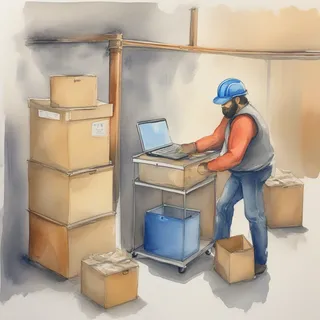Here's something most organizations get wrong: they blast their message across social media but forget to create space for others to respond. The loudest voice in the room isn't always the most valuable one.
Even small contributions make a difference.
Open-source software is not free. Open-source software is not static. Open-source software evolves with you—and is built on the contributions of millions of users around the world. It is never going to be just another product target for large corporations, because it isn't intended to be. Open source means YOU get to decide what happens to it
The more you learn about the social web, the more you realize that there are many voices to be heard. It's not just a bunch of people speaking at once. There's a lot of energy and activity going on in the background that we miss because it's not visible to us.
When I started open-sourcing my web projects, I had no idea who would benefit from my work. When people started asking where they could get involved, it became clear that there were two groups: people who wanted to help me make the world a better place and people who just wanted to watch. Asking whether someone should contribute has turned out to be more difficult than figuring out how.
The quiet contributors who keep everything running
Every open-source project has them. The developers who submit clean pull requests without fanfare. The community members who answer questions in GitHub issues at 2 AM. The maintainers who quietly refactor legacy code while everyone else chases the latest framework.
These people rarely self-promote. They don't tweet about their contributions or write Medium articles about their weekend side projects. They just ship code and move on to the next problem.
But here's what I've learned from years in tech: these quiet contributors often have the most insightful perspectives. They see patterns others miss. They understand the real pain points because they're actually solving them.
Creating space isn't the same as making noise
When I started open-sourcing projects, I made the classic mistake of thinking more promotion equals more engagement. I'd share updates, write blog posts, and hope people would jump in. What actually worked was different.
The breakthrough came when I stopped trying to be the main character and started asking better questions:
- "What roadblock are you hitting that we haven't documented?"
- "Which part of the contribution process feels unnecessarily complex?"
- "What would make this project more useful for your specific use case?"
Suddenly, people who'd been lurking for months started sharing their experiences. Not because I'd convinced them to participate, but because I'd created genuine space for their input.
The infrastructure problem nobody talks about
Open source runs on invisible labor. The person who maintains that critical dependency your entire stack relies on? They're probably doing it in their spare time, dealing with issues on weekends, and getting very little recognition.
We've built a system where the most essential work is often the least visible. The flashy new frameworks get all the attention while the fundamental libraries that actually power everything get maintained by volunteers who are one burnout away from walking away.
This isn't sustainable, and it's definitely not equitable. Companies that depend on open source need to do more than just consume. Fund the maintainers. Contribute developer time. Pay for the infrastructure. It's not charity – it's good business sense.
Moving beyond good intentions
Amplifying unheard voices requires more than just saying "contributions welcome" in your README. It means actively removing barriers:
Make your onboarding actually work. If it takes three hours to get a local development environment running, you've already excluded most people.
Document the unwritten rules. Every project has implicit expectations about code style, communication patterns, and contribution workflows. Write them down.
Recognize non-code contributions. Documentation, testing, community management, and user experience feedback are all valuable contributions that often go unrecognized.
Be intentional about mentorship. Experienced contributors should actively help newcomers navigate the project and build confidence.
The compound effect
When you consistently amplify diverse voices, something interesting happens. The project becomes more robust because it's solving real problems for real people. The community becomes more welcoming because inclusion becomes part of the culture. The codebase becomes more maintainable because different perspectives catch edge cases and design flaws.
It's not just about being nice (though that matters too). It's about building better software through better collaboration.
Most companies that benefit from open source still treat it like a free buffet. They consume without contributing back. This approach works until it doesn't – until that critical dependency gets abandoned or the maintainer burns out.
Smart organizations understand that sustainable open source requires investment. Not just money (though that helps), but time, expertise, and genuine participation in the community.
Start small, think systematically
You don't need to revolutionize the entire open source ecosystem to make a difference. Start with your own projects and teams:
Review your contribution guidelines. Are they actually helpful, or just legal boilerplate?
Look at your issue tracker. How welcoming is it to newcomers? How quickly do you respond to questions?
Examine your code review process. Does it educate and encourage, or just gate-keep?
Check your documentation. Can someone who's never seen your project get it running locally?
The goal isn't perfection – it's progress. Every barrier you remove, every voice you amplify, every contribution you nurture makes the ecosystem a little stronger.
Because at the end of the day, the best code comes from diverse teams solving real problems. And the only way to build those teams is to make space for voices we haven't heard yet.
Let me speak for countless organizations that use Open Source Software as a strategic platform across many nations and industries
We've all wanted to be heard, seen and considered; acknowledged for the work that we do. But there is so much out there - loud, distracting and without context - that it can be easy to get lost in the noise. It's easy to forget about the stories behind the organizations you support. That's why I'm asking you to take action by amplifying the voices of people like you across the globe. Amplify the voices of entrepreneurs, creatives and leaders by sharing their stories directly on Facebook, Twitter, LinkedIn and other social media channels.
Consider this: the world is in desperate need of constructive, measurable change. Yet more than 60% of people still decide what they want to do about their financial situation by listening to their gut instead of using facts to support their solution. This is absurd. For everyone to succeed in the 21st-century economy, we all need to take action on habits and attitudes that keep us from prospering. It doesn't matter how much you study or how hard you work if you don't take action.
It's your turn to help them succeed
for these technology-driven companies
When you contribute to open source projects, you’re amplifying the voices of people who could never normally reach the top. What’s more, these contributions build momentum for the projects and make them more sustainable for everyone involved. The contributions you make can help a project from inception to success.
Ambition is a contagious attitude, and that contagious spirit is being harnessed to fuel a movement for responsible corporate action. As entrepreneurs, we feel like we're on a mission to change the world; we're not sure what that mission is. We're executing within our parameters but without a clear perspective point. We're excited about what's possible but unsure how to make it happen. That's the spirit at the heart of Ambition





